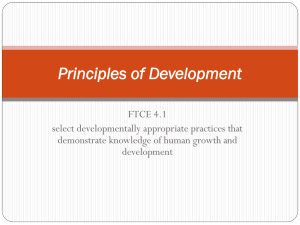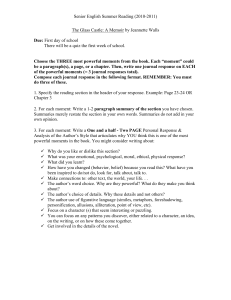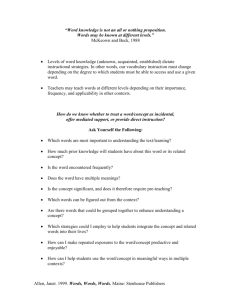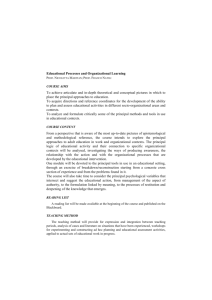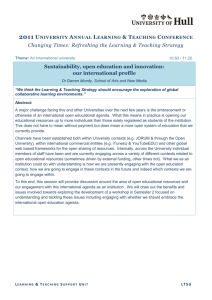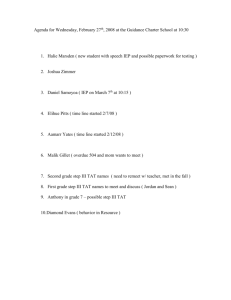ANNOTATION an·no·tate
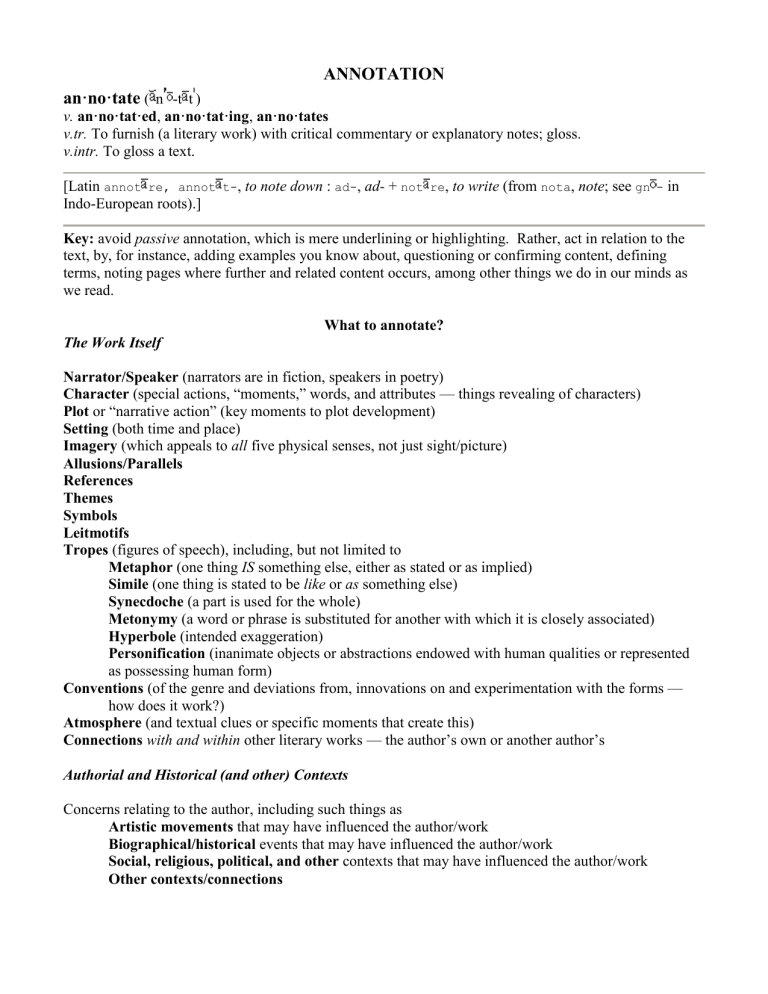
ANNOTATION an·no·tate
( n -t t ) v.
an·no·tat·ed
, an·no·tat·ing
, an·no·tates v.tr.
To furnish (a literary work) with critical commentary or explanatory notes; gloss. v.intr.
To gloss a text.
[Latin annot re, annot t, to note down : ad, ad + not re , to write (from nota , note ; see gn in
Indo-European roots).]
Key: avoid passive annotation, which is mere underlining or highlighting. Rather, act in relation to the text, by, for instance, adding examples you know about, questioning or confirming content, defining terms, noting pages where further and related content occurs, among other things we do in our minds as we read.
What to annotate?
The Work Itself
Narrator/Speaker (narrators are in fiction, speakers in poetry)
Character (special actions, “moments,” words, and attributes — things revealing of characters)
Plot or “narrative action” (key moments to plot development)
Setting (both time and place)
Imagery (which appeals to all five physical senses, not just sight/picture)
Allusions/Parallels
References
Themes
Symbols
Leitmotifs
Tropes (figures of speech), including, but not limited to
Metaphor (one thing IS something else, either as stated or as implied)
Simile (one thing is stated to be like or as something else)
Synecdoche (a part is used for the whole)
Metonymy (a word or phrase is substituted for another with which it is closely associated)
Hyperbole (intended exaggeration)
Personification (inanimate objects or abstractions endowed with human qualities or represented as possessing human form)
Conventions (of the genre and deviations from, innovations on and experimentation with the forms — how does it work?)
Atmosphere (and textual clues or specific moments that create this)
Connections with and within other literary works — the author’s own or another author’s
Authorial and Historical (and other) Contexts
Concerns relating to the author, including such things as
Artistic movements that may have influenced the author/work
Biographical/historical events that may have influenced the author/work
Social, religious, political, and other
Other contexts/connections contexts that may have influenced the author/work
